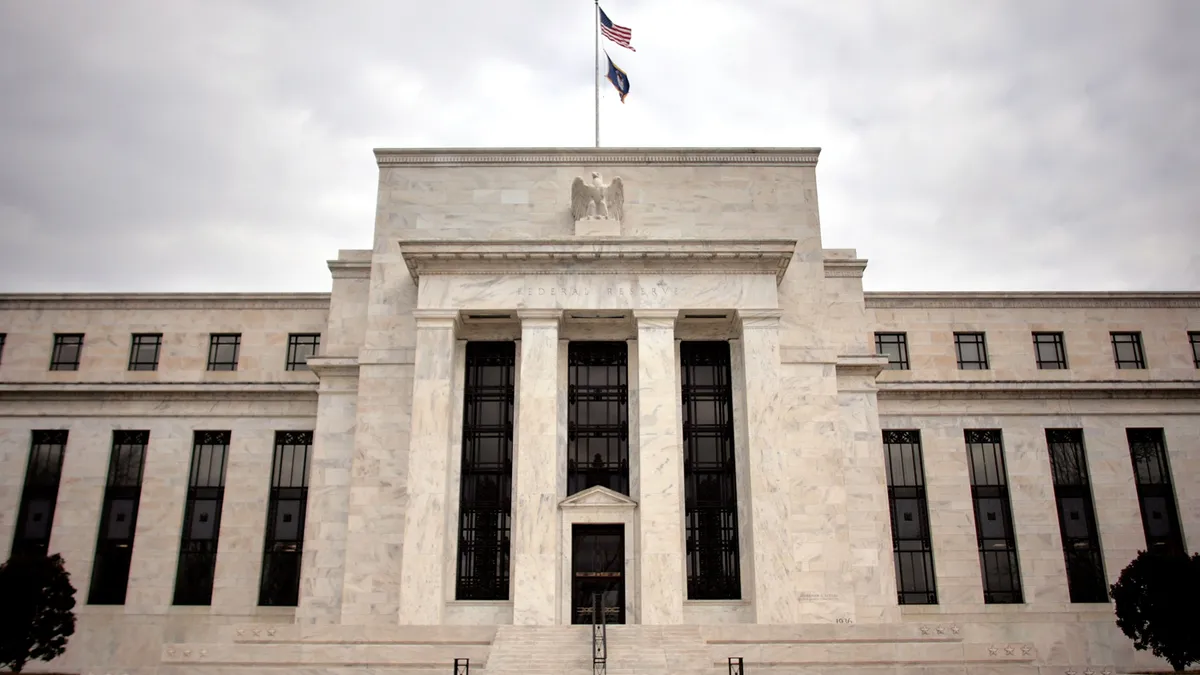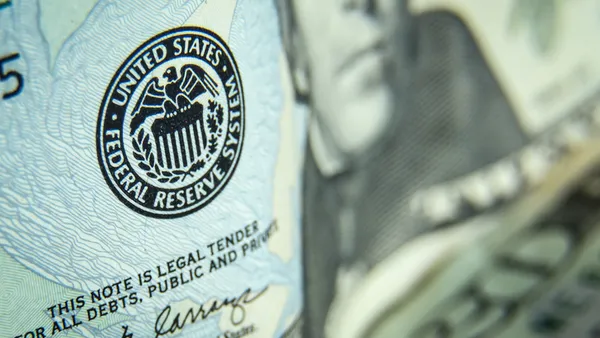Dive Brief:
- Supply chain disruptions, severe financial sanctions and other economic turbulence caused by Russia’s invasion of Ukraine has so far not overridden the need for a pullback in monetary stimulus this month, Federal Reserve Chair Jerome Powell said Wednesday.
- Fed policymakers “think it’s appropriate that we engage in a series of rate increases over the course of this year and also let our balance sheet shrink,” Powell said in testimony to the House Financial Services Committee, suggesting that the central bank will likely raise the benchmark interest rate by a quarter point at its March 15-16 meeting.
- The Fed “will need to be nimble in responding to incoming data and the evolving outlook,” Powell emphasized, adding that the “near-term effects on the U.S. economy of the invasion of Ukrarne, the ongoing war, the sanctions and of events to come remain highly uncertain.”
Dive Insight:
After months of adapting to the highest inflation in four decades, CFOs confront severe challenges caused by Russia’s invasion of Ukraine, including a surge in oil prices, constraints on the shipment of goods and efforts by the U.S. and European Union to punish Moscow with a broad range of trade and financial sanctions.
Boeing, Fedex, Apple and several other companies have suspended or reduced operations in Russia, and the price of U.S. crude oil exceeded $110 for the first time since 2014.
“We’ve seen energy prices move up further and those increases will move through the economy and push up headline inflation,” Powell said, noting an increase in the price of other commodities as well.
The Fed’s preferred measure of price gains — the core personal consumption expenditures (PCE) price index — increased in January to a 38-year high of 5.2% compared with the prior year, the Labor Department said Friday. The central bank has set an inflation target of 2%.
The producer price index for final demand, a measure of what suppliers charge, soared 9.7% in January from the prior year as the pandemic continued to crimp supply chains in industries ranging from housing to technology to autos.
The Fed’s tool kit is designed to fight inflation by influencing demand rather than supply, Powell said, noting that policymakers currently face “an elevated level of demand in the face of supply side constraints, and it’s the collision of those two things that’s creating inflation.”
“There is an important job for us to move away from these very highly stimulative monetary policy settings to a more normal level of rates,” he said, adding “that is what the committee plans to do.”
At the same time, policymakers “will use our tools to add to financial stability, not to create uncertainty."
The Fed and U.S. banks are wary of the need to defend against cyberattacks, Powell said.
“We’ve been on very high alert for cyberattacks,” he said. “We haven’t seen any, any notable incidents about that yet,” adding that the central bank coordinates such defenses with the U.S. Treasury, and has ensured that the banks under its supervision are on high alert.












